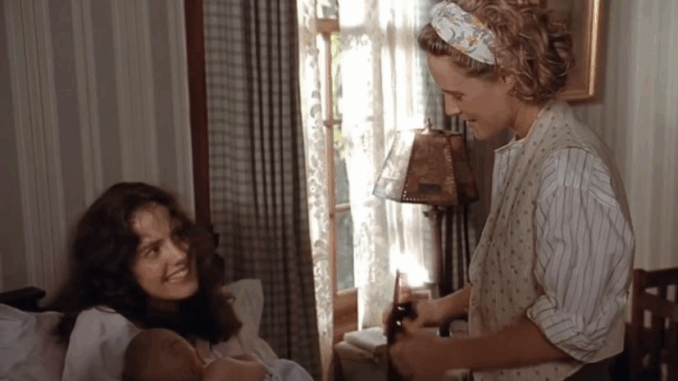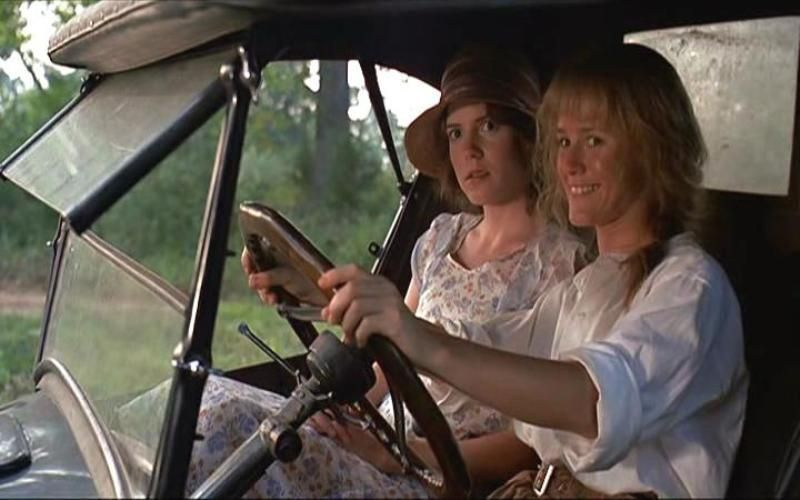
There are films that entertain you — and then there are films that stay with you. Fried Green Tomatoes (1991) is one of those rare few. It lingers, long after the credits roll, like the smell of fresh pie cooling on a Southern porch. Its warmth, humor, and heartbreak come together in a story that feels as alive today as it did over thirty years ago. And at its center glows the quiet, radiant soul of Mary-Louise Parker as Ruth Jamison.
From the moment Ruth appears on screen, she embodies a kind of fragile beauty that isn’t about appearance — it’s about grace. Parker doesn’t demand attention; she earns it through stillness, through glances heavy with emotion, through the way Ruth’s voice trembles when she speaks of hope. In a story filled with larger-than-life personalities, Ruth is the calm heartbeat — the character who reminds us that love can be both gentle and fierce.
The film itself is a love letter to resilience. Through the friendship between Ruth Jamison and Idgie Threadgoode (Mary Stuart Masterson), Fried Green Tomatoes explores themes of identity, loyalty, and the unspoken bond between women who refuse to be defined by society’s rules. Their connection — often interpreted as both deep friendship and romantic love — is portrayed with such tenderness that it transcends labels. Parker’s Ruth gives that love a spiritual dimension; it feels sacred, healing, eternal.

One of the film’s most moving arcs is Ruth’s transformation — from a woman trapped in fear to someone who dares to live freely. Parker captures that evolution with heartbreaking honesty. Her Ruth doesn’t shout her rebellion; she simply chooses to live with kindness despite cruelty, to love despite loss. It’s the quiet kind of courage that changes everything.
Director Jon Avnet crafted Fried Green Tomatoes as a celebration of memory — stories passed down, truths rediscovered, pain softened by time. And through it all, Mary-Louise Parker becomes the vessel of that memory. When her character dies, it’s not just a loss for Idgie — it’s a loss for everyone watching. But the beauty of Parker’s performance is that Ruth never really leaves. Her spirit lingers in every scene that follows — in laughter, in recipes, in the way the women of Whistle Stop carry on.
Critics have often praised Kathy Bates and Jessica Tandy for their roles in the film’s present-day storyline — and rightly so. But it’s Parker’s luminous portrayal that gives the movie its emotional spine. Without Ruth’s love and sacrifice, there would be no transformation, no redemption, no story to tell. She is the heart that keeps Whistle Stop alive.
Even decades later, audiences return to Fried Green Tomatoes not just for its charm, but for the emotional truth that Mary-Louise Parker helped create. Her performance reminds us that strength doesn’t always roar — sometimes it’s the quiet voice that whispers, “Keep going.”
Ruth Jamison remains one of cinema’s most soulful creations — and through her, Parker gave us a timeless lesson: that even the softest hearts can leave the strongest legacy.
